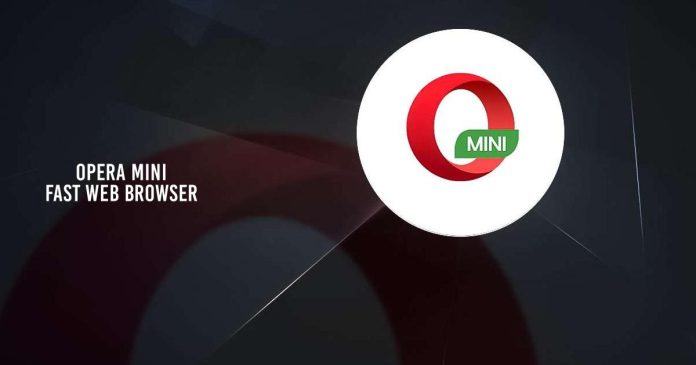Opera Mini browser, Opera’s mobile browser with almost 50 percent mobile browser marker share in Kenya, has since 2020, run a highly popular Free Data campaigns for its Opera Mini browser users in Kenya.
Famous for its efficiency in data usage, appealing significantly to Kenyan users since data costs in the country are prohibitively high, Opera Mini claims to be the most downloaded browser, with over 13 million users in Kenya.
According to Statscounter, Opera had almost 50% of the mobile market share in February 2024, splitting the market with Chrome. Locals often rely on Opera Mini for internet access, with the browser offering up to 90% data savings.
One of Opera’s commitments to the market is its highly popular Free Data campaigns available to users of the Opera Mini browser. Through this campaign, users enjoy up to 1.5GB of data a month for free, which would also last ten times longer than on any other major browser thanks to its unique data-saving functionality. Over 2023 alone, the company has provided over 4 million GB of data for free as a part of these campaigns, the equivalent of 1.6 billion KES. The campaigns have been available to users since 2020.
When Opera celebrated its 15th anniversary, it collected users’ stories about Opera Mini’s impact on their lives. Kenyans were sharing how data-saving and free data access helped them get through universities, find new clients for their small businesses, and be closer to their family members living far away. We sought to find out from Kenyans how the free data used to help them and here is some of the feedback we received.
“ I love keeping up with football game updates and scores especially when the league is on. Using my main browser, I can get the latest updates frequently without having to worry about spending a lot of money purchasing bundles,” John Mwangi.
“I started an online business a few months ago – I sell thrifted (second-hand) clothes. I mostly advertise via Social media. I discovered Opera Mini and its data-saving capabilities through a friend running a similar business. I began using the app and have never looked back. I also loved the fact that I was getting free 50MB daily and this had a huge impact on my business as it helped me keep my costs low. Opera has helped me improve my online customer service and has grown my business significantly as I do not have to worry too much about my data costs,” Scholastica Mutheu- Business lady.
Opera’s free data comes through for me when I need to do research and school assignments. It helps me save when I am downloading a lot of documents. It has helped me save a lot of cash which I can use for other needs such as food and transport to and from college,” Mark- College student.
Despite the significant impact of Opera’s initiative, recent regulatory changes pose new challenges to keeping these campaigns running.
Regulatory Changes and Their Implications
As stated in Opera’s recent blog, the company had to stop Free Data campaigns across Kenya. After doing our investigation and talking to sources close to the company, the reason behind the halt of the free data campaigns is the recent decision of the Betting Control and Licensing Board (BCLB) to cease advertising on bookmarks.
Previously, campaigns run by Opera offered up to 1.5GB of free data monthly, significantly enhancing digital inclusion across various demographics. The BCLB’s decision is the reason why over 13 million Kenyans will no longer be getting 50 MB of free data daily. The users who benefited from them now face barriers to accessing the web.
Before the regulatory changes, Opera shared plans for an extensive investment for the upcoming year, meeting or exceeding the previous year’s amount spent on Free Data campaigns in Kenya. However, the BCLB’s decision seems to place these plans on indefinite hold, creating uncertainty about the future of these campaigns.
Broader Implications for Digital Access
The halt of Free Data programs brings up the major issue that Kenya faces in including everyone in the digital world. As the country continues to navigate the complexities of digital policy, the need for strategies that support affordable internet access becomes clear.
It now appears that Feature Phone users have been even more adversely affected by the ruling, with unconfirmed sources suggesting that over 2 million Kenyans using Feature Phones have lost internet access since Opera stopped its Free Data program. The Free Data campaigns are the only way to get online for many of Opera’s Mini’s 6 million Feature Phone users, meaning that a significant number of Kenyans have lost their main lifeline to the internet – including access to their online jobs, the opportunity to connect with family or look for educational content, news and information.
This situation shows how important it is to balance regulatory intent with its impact on public access to digital resources. It also calls for a reassessment of how such policies align with the broader goal of digital inclusion and economic development in Kenya.

